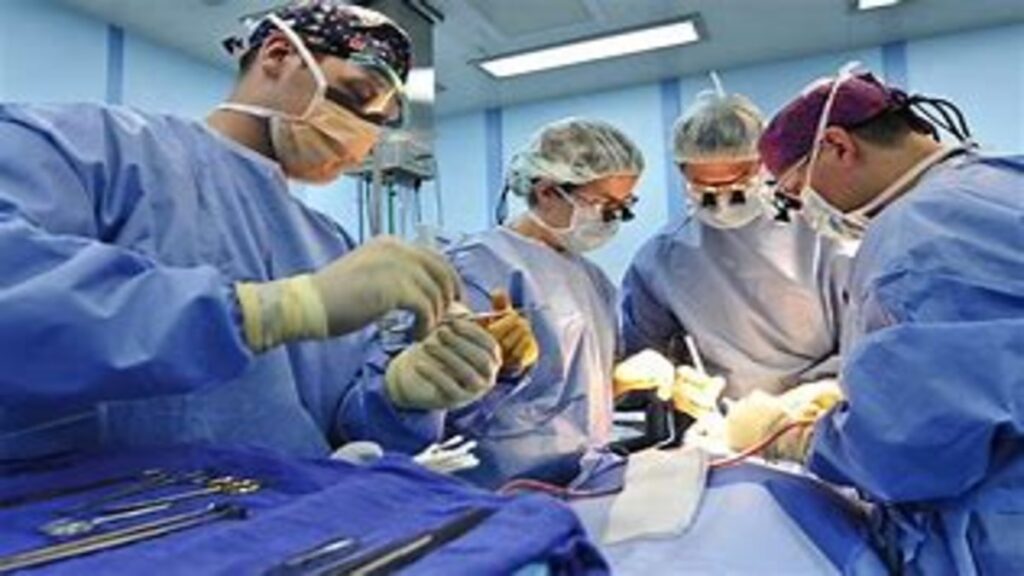Surgical tech jobs. Surgical technologists, also known as surgical techs or operating room technicians, play a crucial role in the medical field. While surgeons perform life-saving operations, surgical techs are the ones who make sure everything behind the scenes runs like clockwork. If you’re looking for a hands-on healthcare job that’s fast-paced, rewarding, and in high demand, surgical tech jobs might just be the perfect fit.
What Is a Surgical Tech?
A surgical technologist assists during surgical procedures, ensuring the environment is sterile, instruments are ready, and the surgeon has everything they need. Think of them as the right hand of the surgeon, working directly in the operating room (OR).
Key Responsibilities of Surgical Techs
Surgical tech jobs involve a variety of tasks, including:
- Preparing the operating room with sterile instruments, equipment, and supplies.
- Assisting the surgical team by passing instruments during procedures.
- Maintaining a sterile environment to prevent infections.
- Counting supplies and tools before and after surgery.
- Handling specimens for lab analysis.
- Assisting with patient prep, including cleaning and disinfecting incision sites.
Where Do Surgical Techs Work?
While most work in hospitals, surgical techs are also needed in:
- Outpatient surgical centers
- Physicians’ offices
- Private clinics
- Specialty practices (e.g., orthopedics, plastic surgery)
- Labor and delivery departments
- Travel surgical tech agencies
Skills You Need to Succeed as a Surgical Tech
Working in surgery requires a sharp mind, steady hands, and a strong stomach. Some key skills include:
- Attention to detail – Every tool, every motion counts.
- Quick thinking – You have to anticipate the surgeon’s needs.
- Teamwork – You’ll work closely with nurses, anesthesiologists, and surgeons.
- Manual dexterity – Precise hand movements are critical.
- Emotional resilience – Surgery can be intense and stressful.
- Physical stamina – You’ll be on your feet for long hours.
Education and Training Requirements
To become a surgical tech, you’ll typically need a certificate or associate degree from an accredited surgical technology program. These programs often include:
- Anatomy and physiology
- Sterile techniques and infection control
- Surgical procedures
- Operating room ethics and safety
- Hands-on clinical practice
Training usually takes 12–24 months. After graduation, you can pursue certification for better job prospects.
Certification Options
Though not always required, certification gives you a competitive edge. Two popular options:
- Certified Surgical Technologist (CST) – Offered by the NBSTSA
- Tech in Surgery – Certified (TS-C) – Offered by the NCCT
Certification usually involves passing an exam and maintaining continuing education.
Surgical Tech Salary Overview
Surgical techs earn competitive wages, especially for a role that doesn’t require a four-year degree. According to the U.S. Bureau of Labor Statistics:
- Median annual salary: Around $55,000
- Top 10% can earn over $75,000
- Factors affecting salary: location, experience, certifications, and type of facility
States like California, Alaska, and Nevada often offer higher pay.
Job Outlook for Surgical Techs
The demand for surgical techs is growing. The Bureau of Labor Statistics projects a 5% increase in employment through 2032 faster than average.
Why the growth?
- Aging population = more surgeries
- Advances in medical technology
- Increased outpatient surgical procedures
Bottom line: it’s a stable career with lots of opportunity.
Advantages of Being a Surgical Tech
Why choose this career path? Here’s what makes it appealing:
- Quick entry into healthcare – Start working in 1–2 years.
- High job satisfaction – You directly impact patient care.
- Opportunities for advancement – Move into surgical assisting, RN programs, or management.
- Flexible work environments – From major hospitals to small clinics.
- Steady demand – Especially in urban centers and specialized fields.
Conclusion
Surgical tech jobs are an incredible opportunity to break into healthcare without spending a decade in school. With the right training and mindset, you can build a rewarding, impactful, and stable career. If you’re passionate about helping others and thrive in high-stakes environments, it could be the perfect fit.
FAQs
1. Do surgical techs work night shifts?
Yes, many surgical techs work evening, weekend, or overnight shifts, especially in hospitals.
2. Can you become a surgical tech without a degree?
Most jobs require a certificate or associate degree from an accredited program.
3. Is being a surgical tech hard?
It can be physically and emotionally demanding, but it’s very rewarding for the right person.
4. How long does it take to become a surgical tech?
Usually 12–24 months, depending on the program.
5. Can surgical techs specialize?
Yes! You can specialize in areas like orthopedics, cardiovascular, or neurosurgery.







